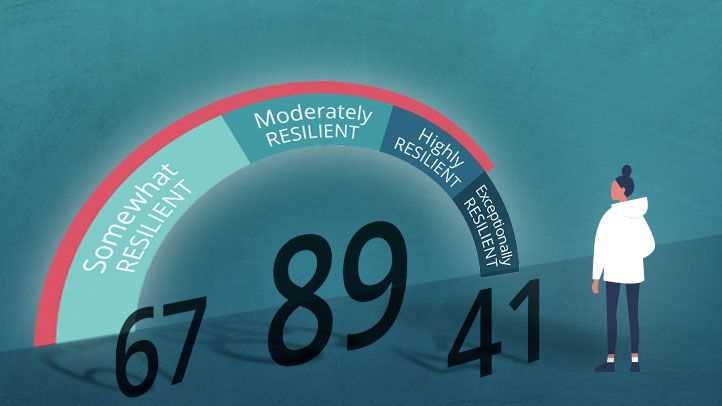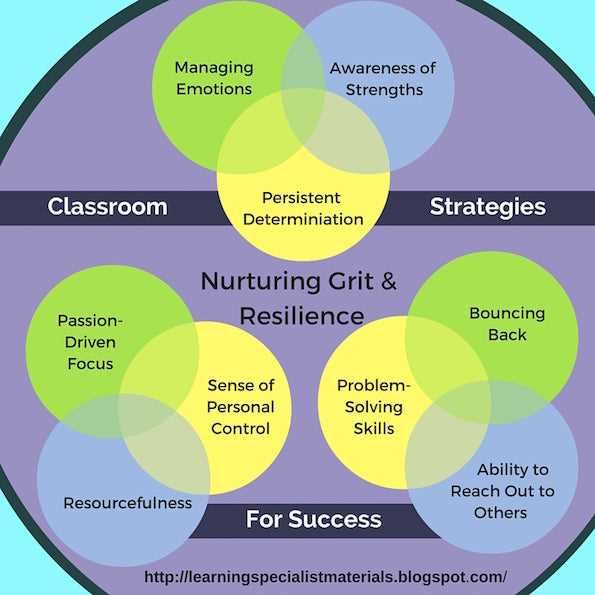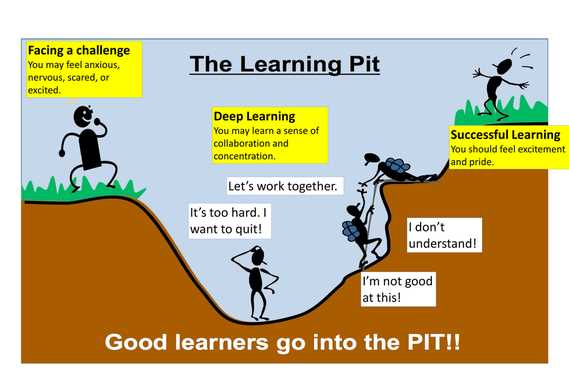
When it comes to facing challenges and overcoming obstacles, two words that often come to mind are “resilient” and “strong”. While they may seem similar, they actually have distinct meanings and implications in different contexts.
Resilient refers to the ability of something or someone to bounce back and recover quickly from difficulties or setbacks. It implies a certain level of flexibility and adaptability, allowing one to withstand and even thrive in the face of adversity. A resilient person is like a rubber band that stretches but never breaks, always finding a way to come back stronger.
Strong, on the other hand, emphasizes power and might. It denotes the physical or mental capacity to withstand force or pressure without giving in or yielding. A strong person is like a sturdy tree that stands tall and firm, unyielding to external forces. Strength is often associated with being tough, persistent, and indomitable.
While both resilience and strength are valuable traits, they serve different purposes and are important in different situations. Resilience enables individuals to adapt to change and recover from setbacks, while strength provides the ability to withstand and resist external pressures. In a world that is constantly changing and presenting new challenges, it is crucial to cultivate both qualities.
Ultimately, the ideal scenario is to be both resilient and strong. The combination of these qualities allows individuals to endure and thrive in the face of adversity. Being resilient means having the ability to bounce back and recover quickly, while being strong means having the capacity to withstand and resist. Together, they create a powerful force that can overcome any obstacle and achieve success.
Resilient: What It Means and Why It Matters

Resilient is a term that describes something or someone that is able to withstand difficult or challenging situations. It is synonymous with words like persistent, robust, sturdy, tough, powerful, and indomitable. Resilience is not just about being strong, but also about being able to bounce back and recover quickly from adversity.
In today’s fast-paced and unpredictable world, resilience has become an essential trait. It is the ability to adapt and thrive in the face of adversity that sets resilient individuals apart. Resilience enables people to overcome obstacles, learn from failures, and grow stronger through difficult experiences.
Resilience is not just important on an individual level, but also on a societal level. Resilient communities are better equipped to handle and recover from natural disasters, economic downturns, and other challenges. They have the ability to come together, support each other, and rebuild stronger than before.
Resilience is not something that comes naturally to everyone. It is a skill that can be developed and strengthened over time. Building resilience requires cultivating a positive mindset, developing healthy coping mechanisms, and nurturing strong support networks.
So why does resilience matter? Resilience matters because it allows us to navigate life’s ups and downs with grace and strength. It enables us to face challenges head-on, learn from our mistakes, and grow as individuals. Resilience helps us to stay focused and determined in the face of adversity, and ultimately, it empowers us to overcome obstacles and achieve success.
In conclusion, resilience is a powerful and important trait that can make a significant difference in our lives. It is not just about being strong, but also about being able to bounce back and recover quickly from adversity. Resilience allows us to adapt and thrive in the face of challenges, and it is a skill that can be developed and strengthened over time. So let us embrace resilience and harness its power to overcome obstacles and achieve our goals.
Definition and Explanation


When it comes to discussing the qualities of strength and resilience, it is essential to understand the distinction between the two. While both terms convey a sense of durability and toughness, they differ in their underlying characteristics.
A sturdy or strong individual is someone who possesses physical or mental power, displaying a solid and unyielding nature. They can withstand external pressures and challenges, demonstrating their ability to endure and overcome obstacles. This strength can be seen in their determination, confidence, and unwavering resolve.
On the other hand, resilience refers to the capacity to bounce back or recover quickly from difficult circumstances. It is the ability to adapt and thrive in the face of adversity. Resilient individuals possess a persistent and robust mindset, allowing them to navigate through challenges with grace and composure.
An enduring and tough person displays a combination of strength and resilience. They possess the ability to withstand hardships and remain steadfast in their pursuit of goals. Their indomitable spirit and unwavering determination enable them to overcome obstacles and emerge stronger than before.
In summary, while strength emphasizes a sturdy and strong nature, resilience focuses on the ability to recover and adapt. Both qualities are crucial in navigating life’s challenges and achieving personal growth.
Benefits and Examples


There are many benefits to having a resilient mindset. Resilient individuals are persistent and enduring in the face of challenges, allowing them to bounce back from adversity and continue moving forward. They possess a strong, indomitable spirit that helps them overcome obstacles and achieve their goals.
Resilient people are tough and powerful, able to withstand difficult situations and maintain their composure. They have the ability to adapt and thrive in the face of change, which is especially important in today’s fast-paced and uncertain world.
Being resilient also means being robust and able to handle stress and pressure. Resilient individuals are able to stay calm and focused in high-pressure situations, making them valuable assets in the workplace and in personal relationships.
Here are some examples of resilience in action:
- A student who faces academic challenges but continues to study and work hard to improve their grades.
- A business owner who experiences setbacks but remains determined to succeed and finds new ways to grow their business.
- A professional athlete who faces injuries but continues to train and compete, ultimately achieving their goals.
- A parent who faces difficulties but remains committed to providing a loving and supportive environment for their children.
These examples demonstrate the power of resilience and how it can lead to personal growth and success in various areas of life.
Strong: What It Means and Why It Matters
When we think of strength, we often imagine someone who is powerful, robust, and tough. However, being strong goes beyond physical attributes. It encompasses mental and emotional resilience as well.
A strong person is persistent and indomitable, able to endure challenges and setbacks with unwavering determination. They possess a sturdy and resilient mindset that allows them to bounce back from adversity.
Strength is not just about being tough and powerful; it is about having the inner fortitude to overcome obstacles and persevere. A strong individual is not easily defeated and can adapt and thrive in difficult situations.
Why does strength matter? It matters because life is full of trials and tribulations. Without strength, we may crumble under the weight of adversity and struggle to find our way forward. Strength gives us the courage to face challenges head-on and the resilience to keep going, even when the road is tough.
Moreover, strength inspires others. When we witness someone who is strong, it motivates us to tap into our own inner strength. It reminds us that we, too, can overcome obstacles and achieve greatness.
So, let us strive to cultivate strength in all aspects of our lives. Let us develop a powerful and resilient mindset that allows us to face challenges with courage and determination. By doing so, we can navigate life’s ups and downs with grace and emerge even stronger on the other side.
Definition and Explanation
Resilient and strong are two words that are often used interchangeably to describe something that is robust, powerful, tough, and enduring. While they may seem similar, there is a subtle difference between the two.
Strong refers to something that has great physical or mental power. It is associated with being sturdy, indomitable, and persistent. A strong person or thing is able to withstand great force or pressure without breaking or giving up. They can overcome challenges and obstacles with determination and resilience.
On the other hand, resilience refers to the ability to bounce back or recover quickly from difficulties or setbacks. It is the capacity to adapt and thrive in the face of adversity. A resilient person or thing may not possess the same physical or mental power as a strong one, but they have the ability to recover and continue moving forward.
In summary, while strong emphasizes power and endurance, resilience emphasizes the ability to bounce back and adapt. Both qualities are important and can complement each other, but they have distinct characteristics that set them apart.
Benefits and Examples
A resilient person or system has the ability to recover quickly from difficulties or setbacks. They are tough, robust, and powerful, able to withstand and bounce back from challenges. Resilience is not about being strong in the sense of being invincible, but rather about being able to adapt and persevere in the face of adversity.
Here are some benefits of resilience:
1. Emotional well-being: Resilient individuals are better able to manage stress, regulate their emotions, and maintain a positive outlook on life. They are able to bounce back from disappointments and setbacks, and are less likely to experience mental health issues such as anxiety and depression.
2. Relationships: Resilience is also important in building and maintaining healthy relationships. Resilient individuals are better able to communicate effectively, resolve conflicts, and navigate challenges in their personal and professional relationships.
3. Success and achievement: Resilient individuals are more likely to set goals and work towards them, despite obstacles or setbacks. They have a strong sense of determination and perseverance, which helps them to overcome challenges and achieve their goals.
Here are some examples of resilience:
1. Nelson Mandela: Despite spending 27 years in prison, Nelson Mandela remained resilient and committed to his cause of fighting apartheid. After his release, he went on to become the first black President of South Africa.
2. Malala Yousafzai: Malala Yousafzai, a Pakistani activist for female education, demonstrated resilience in the face of violence and oppression. After surviving a gunshot attack by the Taliban, she continued to advocate for girls’ rights to education and became the youngest-ever Nobel Prize laureate.
3. Thomas Edison: Thomas Edison, the inventor of the phonograph and the practical electric light bulb, displayed resilience in his countless attempts and failures before achieving success. He famously said, “I have not failed. I’ve just found 10,000 ways that won’t work.”
In conclusion, resilience is a valuable trait that brings numerous benefits in personal and professional life. It allows individuals to bounce back from setbacks, maintain emotional well-being, build strong relationships, and achieve success. The examples of resilient individuals like Nelson Mandela, Malala Yousafzai, and Thomas Edison serve as inspiration for us to cultivate resilience in our own lives.
The Difference and Importance of Resilience and Strength
Resilience and strength are two powerful qualities that can help individuals overcome challenges and achieve success in various aspects of life. While they share some similarities, there are distinct differences between the two.
Strength is often associated with being physically powerful, robust, and tough. It is the ability to exert force or withstand pressure. A strong person can lift heavy weights, endure physically demanding tasks, and show physical prowess. However, strength alone may not always be enough to overcome obstacles or bounce back from adversity.
On the other hand, resilience refers to the ability to recover quickly from difficulties, to be persistent and indomitable in the face of challenges. Resilience is not limited to physical strength; it encompasses mental and emotional toughness as well. A resilient person can adapt to changing circumstances, bounce back from setbacks, and maintain a positive outlook despite difficulties.
While strength may be important in certain situations, resilience is crucial in navigating the ups and downs of life. It allows individuals to endure hardships, learn from failures, and grow stronger. Resilience enables individuals to face adversity head-on, without being easily defeated or discouraged. It is the enduring quality that helps individuals stay motivated and focused on their goals, even when faced with setbacks.
Moreover, resilience is not something that is solely innate. It can be developed and strengthened through experience, self-reflection, and learning. Building resilience involves cultivating positive coping mechanisms, developing a growth mindset, and seeking support from others. It is a skill that can be honed over time and is essential for personal growth and success.
In conclusion, while strength is important, resilience is the key to overcoming challenges and achieving long-term success. Being strong may allow individuals to withstand physical pressure, but resilience enables them to bounce back from setbacks, adapt to change, and maintain a positive mindset. Developing resilience is crucial for personal growth, and it is a quality that can be cultivated and strengthened over time.
Understanding the Contrast

When it comes to facing challenges and overcoming obstacles, two words that often come to mind are “resilient” and “strong”. While these terms may seem similar, there is a distinct contrast between them.
Resilient individuals possess an indomitable spirit that allows them to bounce back from adversity. They are persistent in their pursuit of success and refuse to give up, no matter how difficult the situation may be. Resilience is often associated with toughness and enduring strength.
On the other hand, being strong implies having a robust and powerful nature. Strong individuals have the physical and mental capacity to overcome obstacles and push through challenges. They possess inner strength and are able to handle difficult situations with ease.
While resilience and strength may seem interchangeable, it is important to recognize their differences. Resilience is about bouncing back and adapting to change, while strength is about having the power to endure and overcome. Resilience is more about the ability to recover, while strength is about the ability to withstand.
Both resilience and strength are valuable qualities to possess. Resilience allows individuals to adapt and thrive in the face of adversity, while strength gives them the power to overcome any obstacle. By understanding the contrast between these two qualities, individuals can develop a well-rounded approach to facing challenges and achieving success.

I am Patrina de Silva, a psychologist and mental health blogger in Sri Lanka. After obtaining psychology degrees from the University of Colombo and Monash University, I returned home to work as a counselor while also starting the popular blog “Pressy but Happy” to provide advice on psychological issues. Over the past decade, my empathetic articles have made my blog a leading mental health resource in the country. In addition to writing, I maintain a private therapy practice, frequently volunteer counseling time, and conduct seminars, driven by my passion for destigmatizing mental illness and educating the public on the mind-body connection. I strive to be an influential voice in my field through my compassionate approach.
